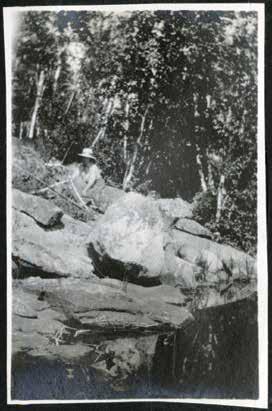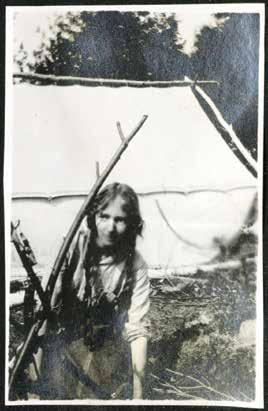
1 minute read
The Woman Yesterday
Clara Stocker (1886-1973)
By Abigail Blonigen
Clara Stocker was a prominent musician, educator and writer born in Duluth in 1886. Her father was a medical doctor, and her mother was a musical composer and lecturer, according to Zenith City Online.
Stocker’s mother, Stella Stocker, was a huge influence on her, passing along her love for music, travel and teaching. Stella Stocker traveled nationally and internationally teaching on Native American culture and music, and would bring her children along on her pursuits. At a young age, Clara Stocker had already traveled with her mother to New York and Europe, notably Germany and France, according to the University of Minnesota Duluth Archives and Special Collections.
Clara Stocker also began performing in recitals when she was young, oftentimes in conjunction with her mother’s music school. Stocker had a brother who was also a talented singer and musician, but he sadly passed away at the age of 14.
As a young woman, Stocker began teaching music and French. She studied at the University of Grenoble and Sorbonne University in France and at Columbia University in New York.
“Clara and her mother continued to travel abroad annually to study and lecture; after months in Europe they would return to Duluth to teach,” according to the UMD Archives.


In the 1920s, Clara published several scholarly articles about the French language in the Modern Language Journal, including “Teaching French Through Folk Songs” and “A Further Study in French Tonetics.” She also founded the Duluth chapter of the l'Alliance Francaise, which brought prominent French speakers to town.
Stocker additionally had an affinity for, and was fluent in, Finnish, visiting Finland a couple of times in the 1930s. There she met lifelong friend and Finnish artist Johno Rissanen, according to Zenith City Online. She would later write a biography about a Finnish minister on the Iron Range.
Stocker taught, wrote and composed in Duluth through the early 1940s. Many of her articles and compositions were published; she had a particular interest in folk music. She also wrote program notes for the Duluth Symphony Orchestra and was a music critic for the Duluth News Tribune.
After World War II, she became active in the World Federalist Movement to create stronger international connections to prevent future wars.
She left Duluth in the early 1950s, spending time in New York City, Mexico and Florida before passing away in Asheville, North Carolina in 1973. D











